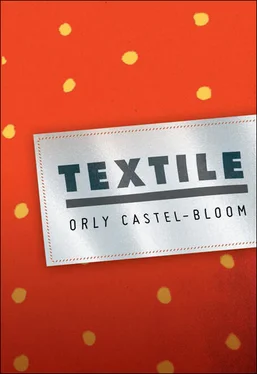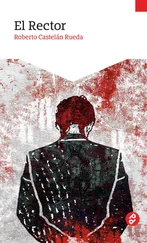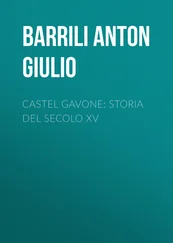After the boy’s shivah, Carmela lost the will to live. Mandy couldn’t stand to see it happening, and she sent her to a great psychiatrist who in two months got her out of bed and put her on her feet. In spite of all the differences, there was a rare, strong friendship between Mandy and Carmela, a kind of secret pact, and in Nighty-Night they said that Carmela Levy received a salary of over six thousand five hundred net, and that she got more coupons on holidays, and more rest and recreation days than anyone else.
TWO WEEKS BEFORE THE LATEST OPERATION, AMANDA called her grown-up daughter Lirit, and confided in her. Lirit lived on a small-holders cooperative called Brosh next to Te’ashur in the northern Negev, with her boyfriend Shlomi. The Grubers, busy with their own affairs, were relieved that their twenty-two-year-old daughter had found herself a forty-two-year-old boyfriend (although Mandy thought he was closer to fifty) and had gone to live with him in an organic paradise in the Negev, far from their eyes. Every month they would throw a few thousand into her bank account for her to do with as she pleased.
As far as Mandy was concerned, Lirit’s future was too uncertain and her choice of partners too haphazard, lacking in planning and content. At the end of her NCO-Casualties course she had fallen in love with a Jamaican Rastaman called Lucas, whom she met at a Reggae club in town.
For almost two years, during her entire army service, Lirit went about with this Lucas, until three months before her discharge from the IDF Mandy invited him for a heart-to-heart in a park on King George Street. She offered him twenty thousand dollars cash to break off relations with her daughter and leave the country never to return. He agreed, and one week later he vanished, leaving a letter, or more precisely a note, in which he wrote in Hebrew with Latin letters: It’s better this way. Sorry.
Lirit’s heart was broken by Lucas’s abandonment, and she either cried all day or didn’t speak. Because of the nature of her work in the army, the psychiatrist gave her a month of excused duty days, to recover her balance.
Even after she got over her depression and returned to her terrible task as an NCO-Casualties, this confused young soul agonized over the question: Why so suddenly? How come she hadn’t noticed any warning signs of the fading of the Jamaican’s love? Why did he disappear from one day to the next?
Something in her ability to comprehend her fellow man was fundamentally flawed, she concluded.
And from then on Lirit got it into her head that anyone who attached himself to her was doing so out of pity or karmic repair, with no hint on the horizon of how she would disabuse herself of this mistaken idea.
After the army Lirit went to the kibbutz seminar to learn how to be a nursery school teacher, because the company of innocent little children who didn’t yet know what was waiting for them, made her feel good. She made them laugh and fascinated them by making all kinds of faces and noises, and her teachers told her that she had what it takes.
SHLOMI WAS FAR LESS PROBLEMATIC than Lucas, even though this esoteric departure from the norm was also a far cry from what Amanda had in mind. She couldn’t understand why her daughter couldn’t find someone cute (and there were plenty of cute guys around today), of her own age and religion, preferably from Israel, preferably in Israel, preferably from the center of the country and from a satisfactory family — and she wished Lirit would study something (even if it was only teaching nursery school) and marry him. Mandy thought that if Lirit got married she wouldn’t have to worry about her anymore. She thought of someone along the lines of a promising student of business administration, or even a young math teacher who wasn’t a pedophile.
She was afraid that her daughter would repeat the mistake that she herself had made when she married Irad Gruber. Although it was true that in his youth he had been great looking, a real charmer with a full head of hair, not like today with his receding hairline, but as a kibbutz leaver he suffered from a lack of earning ability. She had spent a fortune on financing his doctorates and living expenses for the duration. In the course of the years he had progressed and traveled the world, while she stayed stuck with the 100 percent cotton pajamas with no fear of religiously prohibited impurities.
And even after he had completed all his degrees in biology, technology, and engineering, as well as postgraduate courses in personnel management and administration, Irad Gruber remained a financial burden on his wife. Without funding from any outside agency he applied himself to all kinds of inventions in every possible field, conveying to all and sundry the sense that he was about to make an important breakthrough.
“It’s hard to support a genius,” she would joke, without raising a laugh from anyone, including herself.
AND INDEED, after a not insignificant number of years the spiral escalators invented and designed by Irad Gruber gained worldwide recognition and distribution, and the Ministry of Culture, Science, and Sport (CSAS) intervened and provided funding, and Gruber gave Israel’s reputation a boost at a terrible time, when most of the world disapproved of its policies. Many air-raid shelters throughout the world acquired the spiral escalators, as did airports and shopping malls. Much space was saved by this Israeli with his brilliant invention, which in certain places prevented the chopping down of forests or other environmental destruction.
He made many millions for the state, and a few for himself. Mandy fell on the money and invested it in profitable ventures. Gruber was disdainful and didn’t object. Money wasn’t his field, he liked to say.
On the fifty-fourth anniversary of the establishment of the state, he was awarded the Israel Prize for bringing credit to the country in difficult days and injecting important foreign capital into its resources. On the fifty-fifth anniversary of the state he was granted the honor of lighting a torch at the official Independence Day celebration on Mount Herzl.
A WEEK AFTER the attack on the Twin Towers, Gruber was approached by the Weapons and Infrastructure Development Administration (WIDA) at the Defense Ministry and invited to a meeting with important people from the highest echelons. It upset them to see a local, homegrown talent wasted for the benefit of random crowds, coming and going in international airports and shopping centers, while what people desperately needed now was simply to stay alive.
He had a series of meetings at the Defense Ministry with various VIPs, and in a brief and to-the-point conversation in a cafe in the London Ministore, between the deputy defense minister and Irad Gruber, the ministry hired the services of the gifted man to design and produce special, lightweight protective suits that would not limit the movements of the people wearing them, unlike the armor worn by medieval knights, or the heavy flak jackets of our own day issued only to those on the front line.
These important suits were known by the code name “TESU,” or T-suits (in other words, terror suits). The plan was to issue them to all the troops on active service and also to the reserves, and later on to supply them to the entire civilian population, in the event of a terrorist attack.
This was a formula that suited the needs of Irad Gruber down to the ground. The escalators had brought him money, a local prize, international fame and respect, and the new suits would bring him the Nobel Prize. The government provided him with all the conditions for the manufacture of the T-suits. Mandy thought that she would have to attach a catheter to her husband’s head to drain off all the piss that had gone to it since he had received the Israel Prize. Otherwise it was liable to burst with self-satisfaction.
Читать дальше












